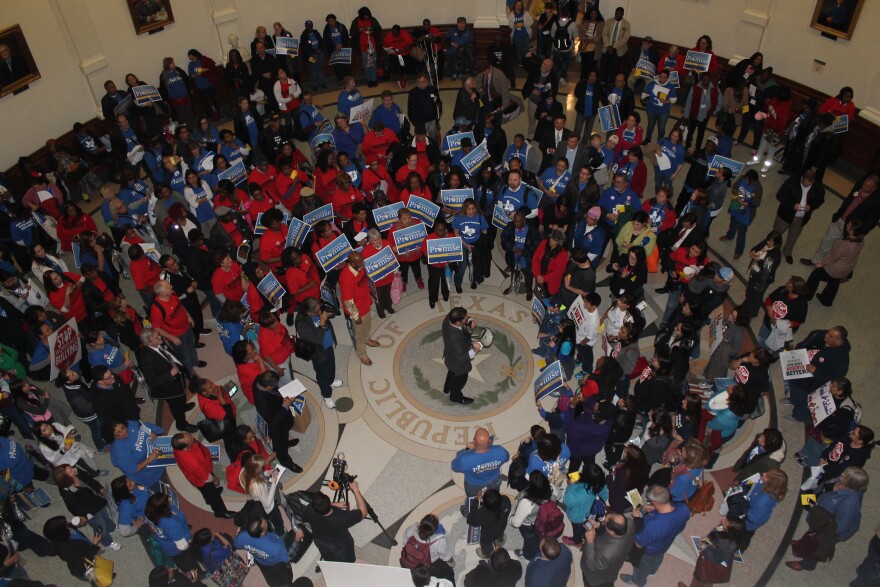Teachers on Spring Break are using their week of vacation to detail a legislative agenda at the State Capitol. Hundreds of members of the two largest teachers’ unions in the state met one on one with lawmakers, and rallied at the Capitol on a number of issues they said would improve education and the lives of educators.
Chartered bus after chartered bus pulled up near the Capitol to drop off teachers from all across Texas, hoping to convince lawmakers to vote “Yes” on a number of proposals involving education and benefits for educators.
Teachers went from office to office to speak with legislators and their staff about bills addressing school-related issues. The one bill that produced the biggest cries for change was a call to fully fund Texas.
In 2014, a Travis County District Judge found the state system for funding public schools to be unconstitutional, based on what the state required of teachers, as opposed to a shortage of funds to accomplish those goals.

Shelley Potter is the president of the San Antonio Alliance of Teachers and Support Personnel. She joined 200 Alamo City educators at the Capitol to also stop what she called a “misuse” of standardized testing. “When I talk about the misuse of testing — testing obviously is a very important part of the teaching and learning cycle. And it’s very important for giving us diagnostic information about where a student is, where a student’s strengths and weaknesses are,” said Potter.
“But to use the tests the way they are used now, as basically the end all and be all and end goal of public education, is wrong, and the more emphasis we place on these tests, the less time there is for that kind of rich interactive interdisciplinary approach to learning,” she explained.
Potter would also like the legislature to increase the amount of money teachers receive to cover the cost of healthcare; she says that formula hasn’t changed since 2001. Teacher groups are also encouraging lawmakers to vote against school voucher bill because they say it would strip even more money away from local school districts.



